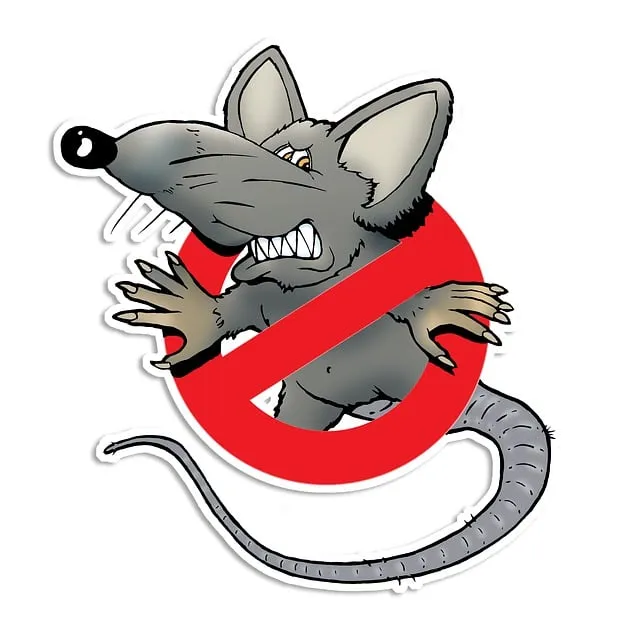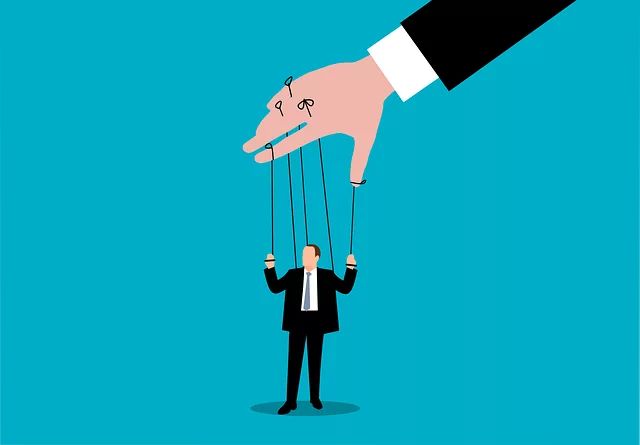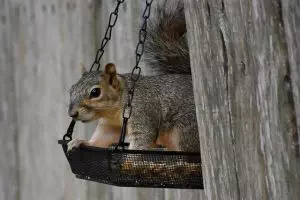Rodent infestations pose significant health and property risks, necessitating proactive rodent control. Early detection through signs like noises, droppings, and odors is crucial. Identifying specific rodent types (rats, mice, squirrels) guides tailored control methods. Regular inspections, sealing entry points, cleanliness, natural repellents, and advanced traps are key to successful rodent control. Modern, eco-friendly IPM methods prioritize prevention and non-lethal techniques. Nature provides solutions like predators, aromatic plants, and ultrasonic devices. For severe infestations or complex cases, professional services offer effective, humane eradication with minimal environmental impact. Continuous efforts through inspections, cleaning, and securing outdoor areas ensure long-term sustainability.
Rodents can cause significant havoc in homes and businesses, leading to health risks, property damage, and substantial economic losses. Understanding rodent infestations is the first step towards effective rodent control. This comprehensive guide explores various aspects of rodent management, from identifying signs and common types to preventive measures, traditional and modern control methods, natural solutions, professional services, and post-treatment care. By leveraging these strategies, you can reclaim your space from unwelcome visitors and maintain a rodent-free environment.
Understanding Rodent Infestations: Identifying Signs and Common Types of Rodents

Rodent infestations can be a significant concern for homeowners and businesses alike, as these pesky intruders can cause extensive damage to structures and pose health risks. Understanding the signs of an infestation is the first step in effective rodent control. Common indicators include unusual noises like scurrying or gnawing sounds, visible droppings, holes or chewed areas in walls, floors, or furniture, and a strong, unpleasant odor. Regular inspections are key to early detection.
Identifying the specific type of rodent is crucial for choosing the right control methods. Common rodents include rats, mice, and squirrels. Rats, known for their large size and distinctive snouts, can cause extensive damage due to their powerful jaws. Mice, smaller but equally invasive, multiply rapidly and leave behind substantial droppings. Squirrels, while often seen as harmless, can become a nuisance when they enter homes and leave behind nuts and debris. Each species requires tailored strategies for effective rodent control.
The Impact of Rodents: Health Risks, Property Damage, and Economic Losses

Rodents, such as mice and rats, pose significant threats to both human health and property. Their presence in homes and businesses can lead to a range of health risks, including the transmission of diseases like salmonella, leptospirosis, and hantavirus. These pests can carry parasites like lice and fleas, which further contribute to potential health issues for residents and pets.
Beyond health concerns, rodents cause substantial property damage. They gnaw on wires, insulation, and wood, leading to electrical fires and structural instability. The cost of repairing this damage adds up quickly, resulting in economic losses that can be devastating for individuals and businesses alike. Effective rodent control is not just about eliminating pests; it’s a crucial step in protecting public health, preserving property values, and mitigating financial burdens associated with rodent infestations.
Preventive Measures: Creating an Unwelcoming Environment for Rodents

Creating an environment that deters rodents is one of the most effective long-term strategies for rodent control. This involves sealing entry points, such as gaps in walls or floors, to prevent their access. Regular cleaning and sanitation are also crucial; eliminating food sources and maintaining a tidy space reduces attraction. Removing potential hiding places like clutter or dense vegetation nearby can make your property less appealing.
Using natural repellents, like certain plants or scents, can further deter rodents. Additionally, implementing physical barriers like metal mesh or wire can prevent their entry. Regular inspection and maintenance of these measures are essential, as rodents are adept at finding new ways in. By combining these preventive measures, you create a robust defense against rodent invasion, promoting an effective rodent control strategy.
Traditional Pest Control Methods for Rodent Management

Traditional pest control methods have long been the go-to for rodent management, employing chemicals and traps to eliminate these unwanted guests. However, these approaches can be both ineffective and harmful. Chemicals may fail to target specific species, leading to collateral damage, while traps can cause suffering and are often inefficient at removing entire colonies.
Additionally, traditional methods don’t address the root causes of rodent infestations. They offer a temporary fix without preventing future invasions. This not only wastes resources but also raises environmental and health concerns related to chemical exposure. As such, modern rodent control solutions focus on integrated pest management (IPM) strategies, combining prevention, habitat modification, and targeted, non-lethal methods for more sustainable and effective rodent control.
Modern, Humane Traps and Repellents: A More Subtle Approach

In the realm of rodent control, modern innovations have introduced more subtle and humane methods that go beyond traditional techniques. These advanced traps and repellents are designed to minimize harm to both pests and non-target species, making them ideal for residential and commercial settings alike. Contemporary traps often employ smart mechanisms, such as automatic release systems and sensitive triggers, ensuring only the desired rodents are caught while allowing others to pass safely.
Additionally, repellent solutions have evolved to include natural and eco-friendly options that deter pests without toxic chemicals. These products can be in the form of ultrasonic devices, scent repellents, or even specialized plants known for their inherent rodent-repelling properties. By employing these modern, humane traps and repellents, individuals and businesses can effectively manage rodent populations while maintaining a safer and more environmentally conscious approach to rodent control.
Natural Solutions: Using Predators, Plants, and Alternative Repellents

In the realm of rodent control, natural solutions offer an eco-friendly and humane approach to managing pest populations. One effective strategy is to utilize predators such as cats or owls, which have a keen instinct for hunting rodents. By introducing these natural predators into your environment, you can deter rodents from dwelling in your space. Additionally, certain plants like peppermint, lavender, and catnip possess strong scents that repel rodents, acting as alternative repellents. These aromatic plants can be strategically placed around areas prone to rodent activity, creating a natural barrier without causing harm.
Beyond predator involvement and plant-based repellents, there are other alternative methods worth exploring for effective rodent control. For instance, ultrasonic devices emit high-frequency sound waves that are unpleasant to rodents, driving them away. Similarly, certain odors like ammonia or hot pepper can deter rodents due to their strong, unpleasant nature. These natural solutions not only prove effective but also contribute to a healthier and more sustainable environment compared to traditional chemical pesticides.
Professional Rodent Control Services: When DIY Isn't Enough

In many cases, attempting rodent control on your own can be effective for small-scale issues. However, when dealing with a significant infestation or complex situations, professional rodent control services offer specialized knowledge and advanced tools that DIY methods cannot match. These professionals are trained to navigate challenging environments, identify entry points, and employ tailored strategies to eradicate rodents humanely and efficiently.
Hiring experts in rodent control is particularly crucial for maintaining a healthy living space and preventing future infestations. They utilize cutting-edge technologies and eco-friendly products, ensuring minimal environmental impact while effectively removing pests. With their expertise, you can rest assured that the issue will be addressed at its source, providing lasting solutions rather than merely temporary fixes.
Post-Treatment Care and Maintenance: Ensuring a Rodent-Free Environment

After implementing effective rodent control measures, proper post-treatment care and maintenance are crucial to ensuring a rodent-free environment in the long term. This involves regular inspections and monitoring to detect any signs of new infestations early on. Maintaining a clean and clutter-free living or working space is essential; as rodents are attracted by food sources and hiding places, keeping areas tidy can deter them from returning.
Regular cleaning routines, including vacuuming and sealing entry points identified during the initial treatment, help to remove any remaining debris, eggs, or droppings that could attract rodents. Additionally, securing outdoor areas by trimming vegetation, fixing broken pipes, and ensuring proper waste management reduces potential habitats and food sources, making it less inviting for these pests.
